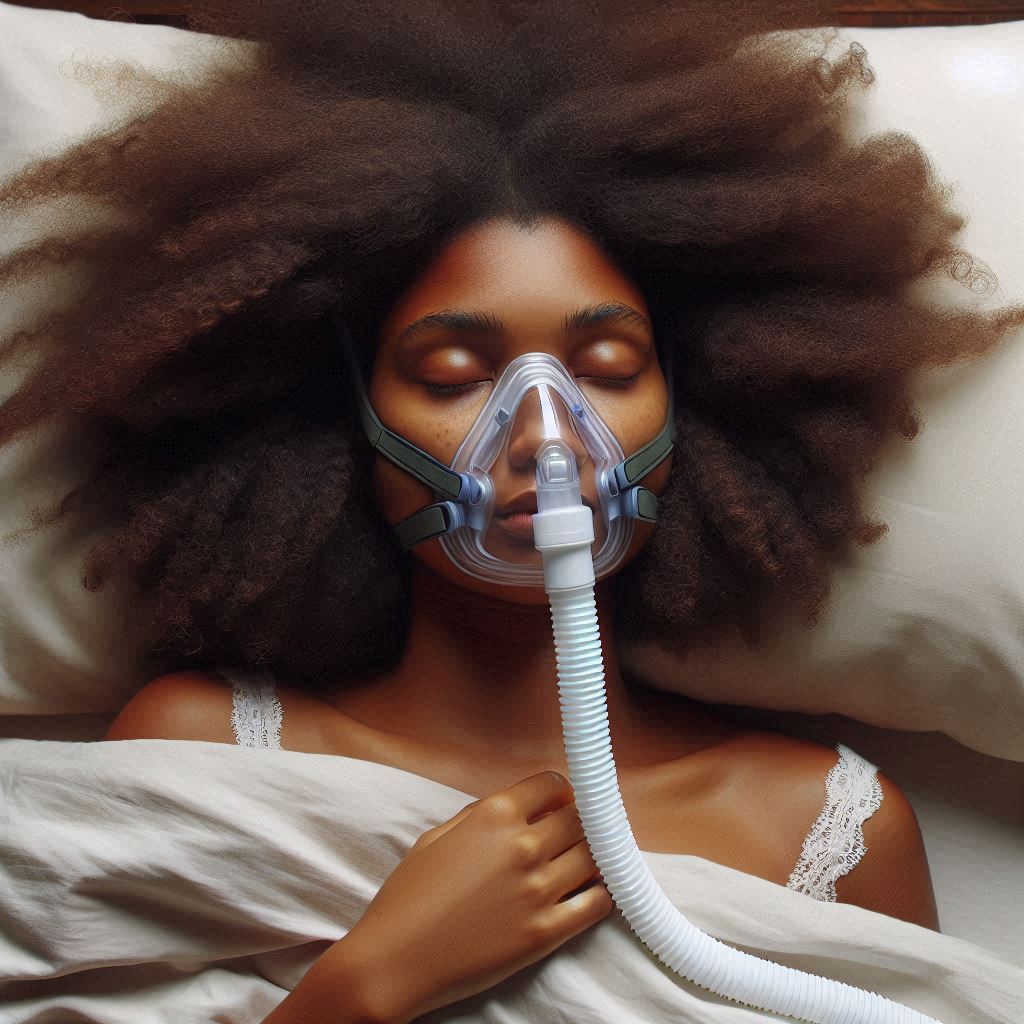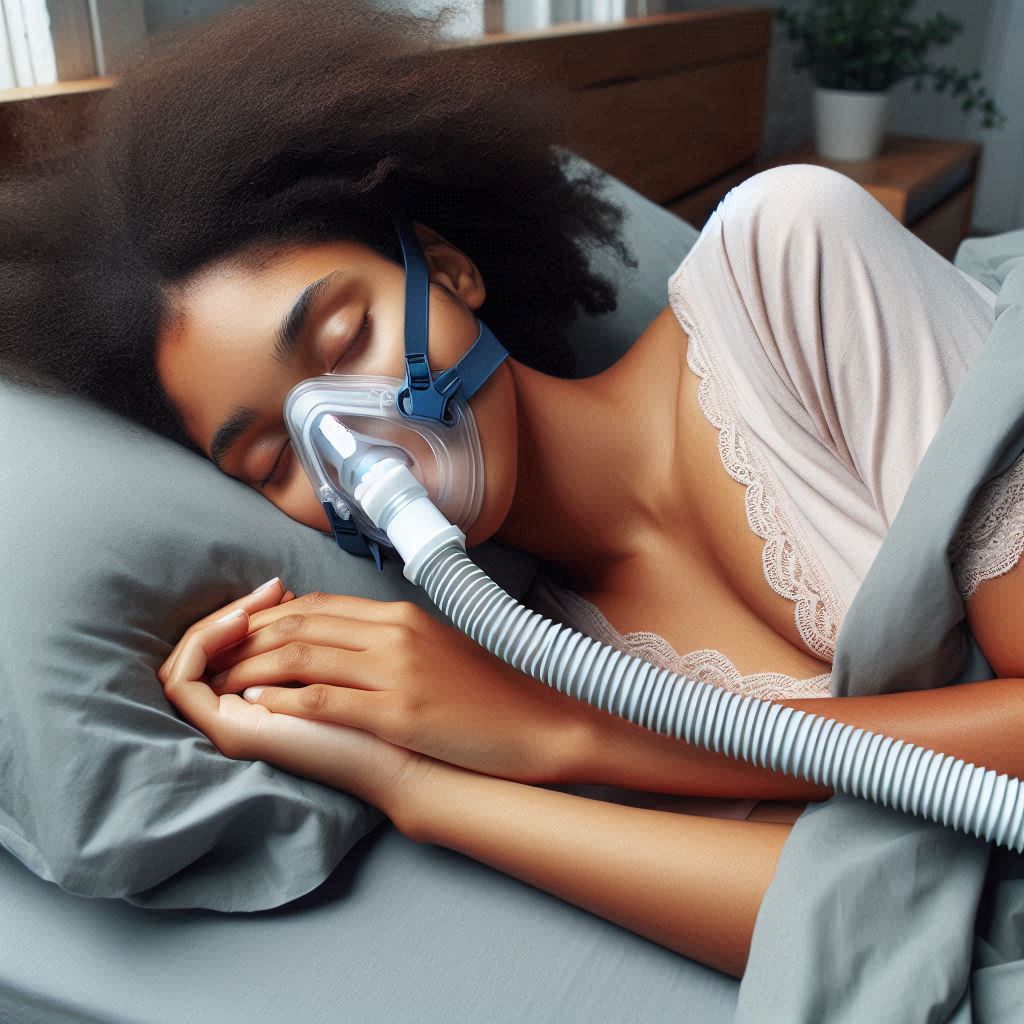
by Tara E. l March 20, 2025
For many people diagnosed with sleep apnea, Continuous Positive Airway Pressure (CPAP) therapy is the go-to treatment. It’s a highly effective way to keep the airways open during sleep, reducing dangerous pauses in breathing. However, despite its benefits, many Black women struggle with using and sticking to CPAP treatment.
From discomfort to cultural barriers and healthcare inequalities, there are multiple reasons why CPAP therapy isn’t always an easy solution. Understanding these challenges is the first step in helping Black women find the support they need to improve their sleep and overall health.
Listen to the Rooted Will, Rising Advocate CPAP Problem: Why Black Women Struggle with Treatment Podcast Episode
The Barriers to CPAP Therapy for Black Women
1. Discomfort and Mask Fit Issues
😴 Ill-fitting masks – Many CPAP masks are designed with standard facial structures in mind, but they don’t always fit well on wider noses, fuller lips, or different bone structures. A poor fit can lead to air leaks, discomfort, and frustration.
😴 Claustrophobia and Anxiety – Wearing a mask every night can feel restrictive, making it difficult to fall asleep comfortably.
😴 Skin Irritation and Hair Concerns – CPAP headgear can cause pressure marks on the skin and friction against hair, leading to breakage, a major concern for Black women who wear protective styles like braids or natural curls.
2. Lack of Education and Support
📢 Doctors Don’t Always Explain It Well – Many Black women report feeling rushed through their diagnosis and treatment options without fully understanding how to adjust and adapt to CPAP therapy.
📢 Minimal Follow-Up Care – Some women receive little to no follow-up after being prescribed a CPAP machine to ensure they are using it correctly or addressing any issues.
📢 Limited Community Awareness – Sleep apnea is not widely discussed in Black communities, so many women may not have friends or family members to encourage them to stay consistent with treatment.
3. Mistrust in the Healthcare System
🏥 Medical Mistrust – Due to historical and ongoing racial disparities in healthcare, some Black women hesitate to trust medical recommendations, including CPAP therapy fully.
🏥 Dismissal of Concerns – If a woman experiences discomfort with CPAP and brings it up to her doctor, she may feel dismissed or told to “just get used to it” rather than receiving real solutions.
🏥 Access and Cost Barriers – High costs, limited insurance coverage, and difficulty obtaining replacement parts make it harder for some Black women to use their CPAP machines consistently.
Solutions: How to Make CPAP Work for You
- Find the Right Mask – There are different types of CPAP masks available! If your mask is uncomfortable, ask about nasal pillow masks, full-face masks, or custom-fit options.
- Adjust Settings Gradually – Many women struggle because the pressure initially feels too strong. Ask your doctor about ramp settings, which start at a lower pressure and increase gradually.
- Use a CPAP-Friendly Pillow – Special CPAP pillows help prevent mask leaks and reduce pressure on the face while sleeping.
- Try Heated Humidification – Dry air from a CPAP machine can cause nasal irritation. Adding a heated humidifier can make breathing more comfortable.
- Protect Your Hair – Use silk or satin headwraps to prevent headgear friction from damaging natural hair.
- Seek Out Support Groups – Look for online communities or local groups where other Black women with sleep apnea share tips and encouragement.
- Talk to Your Doctor – If you’re struggling, don’t just quit CPAP. Speak up! There are many adjustments and alternative treatments available to make therapy more comfortable.
Final Thoughts
CPAP therapy can be life-changing, but only if it works for you. Too many Black women give up on CPAP due to discomfort, lack of education, and systemic barriers in healthcare. If you’ve struggled with CPAP treatment, know that you’re not alone, and there are solutions to make it easier. Your sleep—and your health—are worth fighting for.
If CPAP isn’t working for you, don’t give up. Advocate for yourself, ask questions, and explore every option. Rest is resistance, and you deserve quality sleep!
More from Mahogany Speaks to You

Beyond Snoring: How Sleep Apnea Harms Your Health

Why Black Women Are at Higher Risk for Sleep Apnea

Sleep Apnea & Pregnancy: Protecting Black Mothers and Babies
Read more…COMING SOON